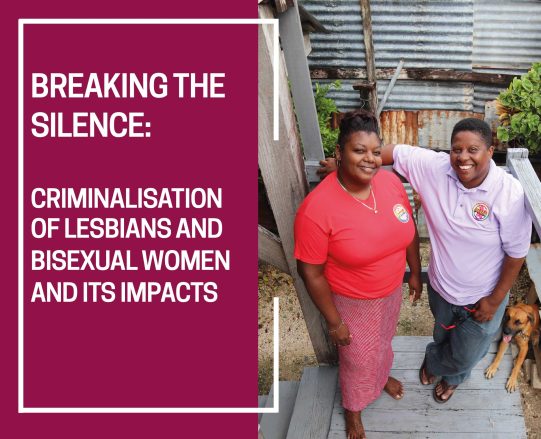![HJ (Iran) and HT (Cameroon) v Secretary of State for the Home Department, Supreme Court of the United Kingdom, [2010] UKSC 31](https://www.humandignitytrust.org/wp-content/uploads/2019/02/HJ-Iran-and-HT-Cameroon-v-Secretary-of-State-for-the-Home-Department.png)
HJ (Iran) and HT (Cameroon) v Secretary of State for the Home Department, Supreme Court of the United Kingdom, [2010] UKSC 31
Judgment of the Supreme Court of the United Kingdom which ruled in favour of two gay men from Iran and Cameroon applying for asylum in the UK. The question for the Court was whether the men could be expected to conceal their sexual orientation in order to avoid the risk of persecution. The Supreme Court held that no one should be expected to conceal their sexual orientation in order to avoid persecution.
Statement by the Anglican Bishops in Southern Africa, On the Imprisonment of Stephen Monjeza and Tiwonge Chimbalanga
In this statement the Bishops of the Anglican Church in Southern Africa called upon the South African Government to seek the release of Stephen Monjeza and Tiwonge Chimbalanga, who were sentenced in Malawi to 14 years imprisonment with hard labour, under the country's laws against homosexuality.
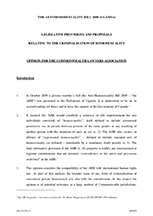
Opinion of the Commonwealth Lawyers Association on the Uganda Anti Homosexuality Bill 2009
This opinion of the Commonwealth Lawyers Association on the Uganda Anti Homosexuality Bill 2009 demonstrates how the Bill contravenes international human rights law and relevant case law.
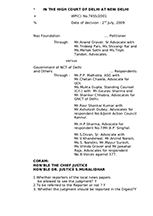
Naz Foundation v Government of NCT of Delhi, Delhi High Court, 160 (2009) DLT 277
The 2009 judgment of the High Court of Delhi finding that Section 377 of the Indian Penal Code criminalising same-sex activity is unconstitutional. The case was brought by the Naz Foundation, an NGO working with people living with HIV/AIDS. The Naz Foundation argued that Section 377 of the Indian Penal Code, which had effectively been interpreted as criminalising consensual sexual acts between persons of the same sex, was unconstitutional and the High Court of Delhi agreed emphasising the importance of the right to equality.
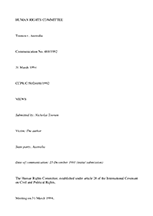
Toonen v Australia, CCPR/C/50/D/488 (1992)
Landmark decision of the UN Human Rights Committee finding that criminalisation of sexual relations between consenting males is a violation of the International Covenant on Civil and Political Rights. Crucially, the Committee noted that the reference to ‘sex’ in Article 26 (equality before the law) and in Article 2(1) (non-discrimination) included sexual orientation.
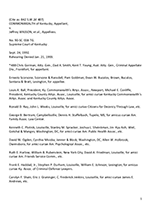
Commonwealth of Kentucky v Watson, Supreme Court of Kentucky (1992), 842 S.W.2d 487
Judgment of the Supreme Court of Kentucky striking down the state sodomy law. The Court held that the statute violated the protection of privacy and equal protection under the Kentucky Constitution.

